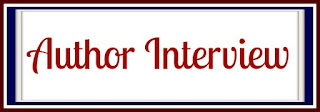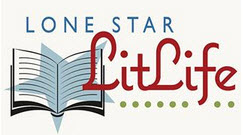


PRAISE FOR SO SORRY FOR YOUR LOSS:
Gachman perceptively puts words to the uncomfortable realities of loss…and deconstructs its social myths, helping readers feel less alone. Those facing loss will find solace here.” —Publishers Weekly
“So Sorry for Your Loss is a monument to the work of remembering and a testament to the immutable love of family and the grief that forever changes us.” —Lauren Hough, New York Times bestselling author of Leaving Isn’t the Hardest Thing
“So Sorry for Your Loss is a meditation on loss that reminds us how to go on living.” —Deirdre Fagan, author of Find a Place for Me and The Grief Eaters

Interview with Dina Gachman
You’re a Texan; how has being a Texan influenced your writing?
As a journalist, I love telling
stories set in Texas and about the culture and people in the state. With the
book, I guess my Texas roots come through in my point of view, and in the
lessons I was raised with like “kill ‘em with kindness” or “don’t be a hateful
Hannah,” which both found their way into the book. Do people say “don’t be a
hateful Hannah” outside the state? I have no idea, but I know my mom and
grandmother said it, and now it’s in my book.
Where did your love of books and writing come from?
I don’t remember a time that I
didn’t love books, writing, and just letting my imagination run wild. I’ve
never wanted to be anything but a writer, except for a brief period when I
wanted to be an archeologist—but that was because of a book I read in fifth
grade called Motel of the Mysteries, where the main character is a
bumbling amateur archeologist. My parents, and especially my mom, nurtured my
love of books and writing. They introduced me to my two favorite books of all
time when I was in high school—my mom gave me Toni Morrison’s Beloved
and my dad urged me to read Larry McMurtry’s Lonesome Dove. Both of
those books will forever be dear to me. I had never read anything as unique and
piercing as Beloved, and I had never fallen in love with characters like
McMurtry’s. I cried reading the last page of both those books, mainly because I
was so devastated that the experience of reading them for the first time was
coming to an end.
What kinds of writing do you do?
Besides writing my own books I do a lot of ghostwriting with celebrities, so that gives me freedom to write stories I care about and pitch ideas to magazines that I’m excited about. The ghostwriting is almost like my base salary, and then I can spend the rest of my time finding interesting stories to tell. I spent so many years waiting tables, writing blog posts for lamp stores, and copyediting tech news to make money, and it took a very long time to get to a place where I could actually say I’m a full-time writer. I hope I never take that for granted. I write for publications I love, like Texas Monthly, Texas Highways, the New York Times, and Teen Vogue, and I get to discover interesting subcultures, like women who race lawn mowers, or profile people like a “yucca whisperer” in West Texas. I love it. As a freelance journalist, you have to be constantly curious, and Texas has an endless supply of people and places to become curious about.
What does your writing
spot look like?
I have an office at home with a
big, beautiful wood desk that my husband made for me in the garage. On the desk
I have a lamp that my mom gave me years ago, with a letter that said she hoped
I would write beautiful things under that lamplight, so how could I ever part
with such a gift? Next to the lamp I have a framed photo of my sister Jackie.
My mom and sister are gone, but those two things on my desk make me feel like
they’re close. The office is full of books and photos and flowers that I love,
and I face a big window that looks outside at some rose bushes and a big yucca.
If my dog is getting too needy, I’ll leave my desk and sit on the couch and
write so he can snuggle with me. Both spots are pretty magical.







No comments:
Post a Comment